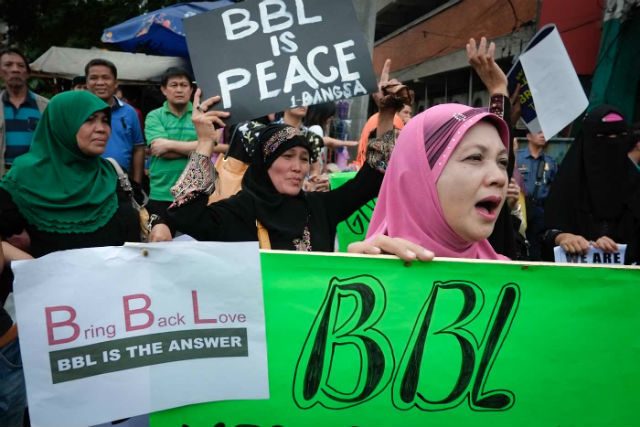SUMMARY
This is AI generated summarization, which may have errors. For context, always refer to the full article.

MANILA, Philippines – Senate Minority Leader Franklin Drilon on Monday, February 5, proposed for the inclusion of an anti-political dynasty provision in the pending Bangsamoro Basic Law (BBL).
Drilon, author of Senate Bill No. 230 or the Anti-Political Dynasty Act, said it is a “fair provision” that would correct “issues that stand in the way of moving democracy forward in that part of the country, particularly in the ARMM [Autonomous Region in Muslim Mindanao].”
“In the Committee Report, I will push for the inclusion of a prohibition on political dynasties. I am open to discuss the extent of the prohibition, but the anti-dynasty principle must be embodied in the BBL,” he said.
Former Chief Justice Hilario Davide Jr, who was among the resource person, agreed with Drilon and said it is time to enact the constitutional provision.
“I agree with you, Senator Drilon… Perhaps it is now high time to exercise some kind of political will, make it model providing for an anti-political dynasty provision. I think that will be a good step forward,” Davide said.
Senate Majority Leader Vicente Sotto III expressed apprehension and cited the debates on the measure during the 9th Congress.
Sotto said he asked former senator Orly Mercado, who was then the sponsor of the measure, on what constitutes a dynasty.
“The consensus was 2nd degree consanguinity and affinity, and that would mean, the wife, children, brothers and sisters could not run. I then asked, what happens to the mistress? The brother of mistress, the children of the mistress not sired [by the person]?”
“[Former] senator Neptali Gonzales joined the discussion and said you cannot legalize the illegal. And that stopped the discussion in the 9th Congress,” Sotto said.
In the end, Sotto said it is the people who would choose their leaders.
Senator Juan Miguel Zubiri, chairman of the Senate subcommittee on the BBL, then asked David if it would be unconstitutional if the anti-dynasty provision would only be implemented in a specific area like the Bangsamoro.
The 1987 Constitution left it to the power of Congress to enact a law against dynasties.
Davide, in response, said: “If you include it in the BBL, that in itself is an act of Congress… as provide by law… The right to hold power continuously in one position, meaning to say, one has monopoly, is not actually a right, it is a liability in a democratic system of government.”
Drilon then cited the Sangguniang Kabataan Reform Act passed in the 16th Congress, where an anti-dynasty provision was also included.
BTC vs anti-dynasty provision?
Lawyer Omar Yasser Sema, a member of the Bangsamoro Transition Commission, opposed the anti-dynasty provision in the BBL.
Sema, who comes from a political family in Cotabato and Maguindanao, said it is a “clear violation of equal protection clause” or the right of every person to vote and be voted.
“No reason to put it there. In the first place, if you can see the provision on election of officials in proposed BBL, it is no longer based on political clans but more on party affiliations, party platforms, sectoral representations, there is no necessity of putting anti-dynasty law there,” Sema told the panel.
Zubiri, however, raised the possibility that political families would still be chosen to head political parties.
Lawyer Maisara Dandamun-Latiph, another BTC member, also questioned the seeming unfairness of the proposal, as it would appear as another “experiment” involving the Bangsamoro.
“We want Congress to take the lead, what we’re seeing is it’s another experiment. It would send a wrong signal, that we are being singled out, considering it’s a national epidemic,” Latiph said.
Drilon and Zubiri said discussions should continue to thresh out issues of different groups. Both said the enactment of an anti-dynasty law should not be left to the members of the Bangsamoro parliament, like in the 1987 Constitution. – Rappler.com
Add a comment
How does this make you feel?





There are no comments yet. Add your comment to start the conversation.